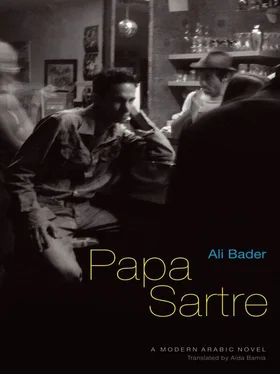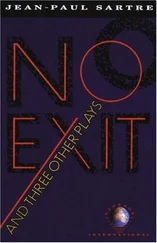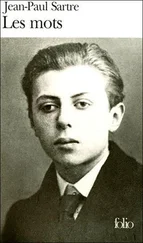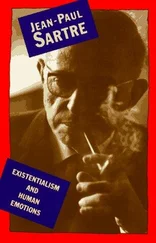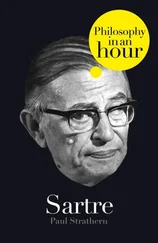I needed to draw a small map of Mahallet Siraj al-Din that would indicate the places where the philosopher had been. I recorded a detailed description of his vast house located at the top of Dr. Simon Bahlawan Boulevard. I gathered information as well about a stable located near Siraj al-Din Mosque. The stable was covered by a sturdy trellis, piles of hay, and used cartwheels. There was also a khan close to the stable. The guardian had been sleeping on the long bench in front of the café facing the mosque, getting ready for the night patrol. A water jar was in the middle of the open space. I located the Jewish merchant Shaul’s shop in al-Sadriya souk. It was a small store that had changed aspect a thousand times since Shaul immigrated to London in the seventies. I had to draw a very precise map for the public transportation system that linked the house to the various locations frequented by the philosopher after he returned from Paris and achieved fame in Baghdad. There were also the locations that shaped his life and were relatively distant from Mahallet al-Sadriya. My first responsibility was to measure the distance between his house in al-Sadriya, where he lived with his French wife, and his grandfather’s house, where he was born and spent his childhood and youth. It was located in al-Maarif Street, near the Greek Armenian Church. The next location was Nadia Khaddouri’s house, an old building on the same street.
I had to establish the relation between these locations and the important personalities who played a role in the life of the philosopher. The list included Ismail Hadoub, who lived for a while in the fifties in the khan adjacent to Siraj al-Din Mosque. There was Shaul, the Lawi family, Nadia Khaddouri, who used to work in Mackenzie’s bookshop on al-Rashid Street, and Edmond al-Qushli, who was nicknamed ‘Trotsky’ in the sixties. The philosopher met him at the Waqwaq café in Bab al-Muadham where he used to sit with people like Desmond Stewart and groups such as the sentries of al-Sadriya, One-Eyed Jaseb, Dalal Masabni the dancer, Rujina the maid, Husniya the washerwoman, Saadun the horse valet, Atiya the gardener, and others.
The research, mapping out of the important locations, and the identification of the places that influenced the philosopher’s life took at least two months. I had to identify the public places where the philosopher was a frequent visitor, places such as the Grief Adab nightclub owned by Dalal Masabni, who had also been the philosopher’s mistress for a time, and a group of other dancers who adopted his philosophy. There was also the Swiss café on al-Rashid Street, where the philosopher met regularly with literary figures, people such as Ismail Hadoub, Edmond al-Qushli, and others. I then moved to Orient Express café on al-Rashid Street, where the philosopher used to meet Nadia Khaddouri during his visits to Baghdad. He used to go to the Qadri al-Ardarumli cinema for the French movie evenings, to the Roxy cinema’s foyer, where he met close family friends, and the Royal cinema’s foyer. He also frequented Mackenzie’s bookstore, where he bought the latest books on existentialism. Finally, I went to Nadi al-Alawiya, the club where he usually met his relatives, some childhood friends, and political figures who knew his father.
The more I learned about important aspects of the philosopher’s life, the more entranced I became. I mean that I enjoyed the simple comments that shed light on an obscure or ambiguous period in his life, since I was well aware that gathering those remarks and reconstructing them to write the biography of a man now reduced to ashes was by no means an easy task. Every now and then I had to subject myself to a terrible process of deceit by people who would exaggerate every simple matter to give it importance, motivated by their ability to dramatize an ordinary event and surround it with a halo of sanctity.
I met people who admired all those who had departed us and would provide wondrous information, so distorted that it was impossible to trace their fantasies back to the original reality. I had to sift through this information, clean it, and keep track of the simple and temporary changes it underwent. When I met Rujina the maid, now an old, poor, and broken woman, who was shabbily dressed, she did not reveal the slightest information about the philosopher’s childhood and teenage years. She looked beyond all his mistakes and stupidities and never admitted to any scandal. She elaborated on the magnanimity of his family and their honor, the great generosity of his parents, and their dignity and virtuousness. So I found myself gathering information that was heavy in virtue but light in vice. I needed to be constantly aware of my informants’ linguistic tricks and examine closely their unlimited support and compassion for a man whom they despised during his lifetime and for whose tragic end they might possibly have been responsible.
I was given some letters and checks — information that did not lack a touch of caricature — but in hindsight I am convinced that the philosopher’s personality was ultimately destroyed by liars who soft-pedaled certain matters, and by other people who in most instances exaggerated matters beyond what was acceptable and appropriate. While searching for information about his private life, I encountered his weaknesses and denials and his attachment to beliefs and ideas. They distorted his image and ended up giving him, in a complex way, distinctive traits that were much harsher than those he naturally possessed. I must admit that the information I received from Hanna Yusif and Nunu Behar was not so bad when stacked up against the conversations of the people who talked about him, the intellectuals who were his contemporaries, in particular. They spoke of him in an unfocused way, and even in a five- or six-hour interview they didn’t provide much information at all.
I had met one of them on a Friday at the Saraya market as he sat squatting, looking for old books among the volumes spread out on the floor. I approached him and told him I’d like to get information about the philosopher. As soon as I spoke he stood up holding several books under his arm. He looked like a pasha’s deputy: his black velvet headgear slightly bent, a straight mustache that looked like a ribbon with straight edges, his vest buttoned snugly over his round belly. He stood up straight, facing me and standing among books that were spread all over the floor. It was a comical scene of a man standing in the middle of a crowd, jostled to left and right, his voice mixed with the shouts of the papermakers, booksellers, and the horns of the cars in the narrow, crowded street.
He replied with a lengthy narrative, “The late philosopher was a great man; he married Sartre’s cousin. He taught the sixties generation about the absurd and about nausea. Suhail Idris, the existentialist of the time, had great admiration for the philosopher. It was an important philosophy in our time. All this is gone now, unfortunately, and our generation was the only one that read Les chemins de la liberté (The Roads to Freedom), La nausée (Nausea), and L’être et le néant (Being and Nothingness). Our nihilism was real. It wasn’t phony. We fought the spies and the collaborators because we were aware of the essence of existence.”
Every time I put my finger on something, he eluded it. I had the impression I was trying to get hold of an imaginary bottle, a mirage. Though it might be difficult for me to remember those ideas and images, which have disappeared for good, it was very hard for me, as I listened to the words of his contemporaries, to find any truth in them. There was nothing but the remnants of dust. I am almost convinced that those stupid guys were truly crazy.
It was incumbent upon me to collect everything; I went after anything I could get. I gathered documents from everybody, whether they contained insults or praise, from common gardeners, uncouth citizens, flattering hypocrites, frivolous men, noble servants, politicians, and saints. Using my intuition I would sketch the background of each based on their names and manners, and then interpret them. Later I would study the feelings stirred up in evoking the memory of the philosopher. I benefited from the documents that Hanna Yusif gave me, especially the documents with narratives, the memoirs, and the photographs and diaries of the philosopher, his father, and others. I eliminated the documents containing comments, which were nothing more than directives inserted by Hanna Yusif and Nunu Behar meant to distort facts and mislead me. They were vulgar and filled with lies and were easy to identify because they were written in a different hand and with various pens. Though they did not contradict the documents I found in other places, I excluded them because they were a contemporary interpretation of past events. I finally realized that the truly important papers were in the hands of two individuals. One was the lawyer Butrus Samhiri, who was in possession of official documents that traced the key episodes in the philosopher’s life and which contained important details. I had to reconstitute them in order to provide a clear image of the philosopher’s public life. The other person was the merchant Sadeq Zadeh, an Iraqi who traded in art objects, carpets, and antiques. The documents in his possession covered an important period in the life of the philosopher, his thinking, and his secret relationships with dancers, prostitutes, and public figures. Those would help me depict the inner feelings of the philosopher, his intimate life, and his psychological profile.
Читать дальше
